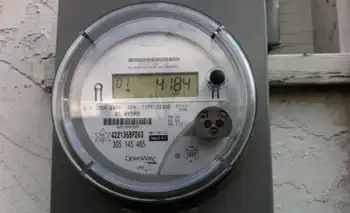PG&E 2024 Rate Hikes signal sharp increases to fund wildfire safety, infrastructure upgrades, and CPUC-backed reliability, with rates expected to stabilize in 2025, affecting rural residents, businesses, and high-risk zones across California.
Key Points
PG&E’s 2024 hikes fund wildfire safety and grid upgrades, with pricing expected to stabilize in 2025.
✅ Driven by wildfire safety, infrastructure, and reinsurance costs
✅ Largest impacts in rural, high-risk zones; business rates vary
✅ CPUC oversight aims to ensure necessary, justified investments
Pacific Gas and Electric (PG&E) is expected to implement a series of rate hikes that, amid analyses of why California electricity prices are soaring across the state, will significantly impact California residents. These increases, while substantial, are anticipated to be followed by a period of stabilization in 2025, offering a sense of relief to customers facing rising costs.
PG&E, one of the largest utility providers in the state, announced that its 2024 rate hikes are part of efforts to address increasing operational costs, including those related to wildfire safety, infrastructure upgrades, and regulatory requirements. As California continues to face climate-related challenges like wildfires, utilities like PG&E are being forced to adjust their financial models to manage the evolving risks. Wildfire-related liabilities, which have plagued PG&E in recent years, play a significant role in these rate adjustments. In response to previous fire-related lawsuits, including a bankruptcy plan supported by wildfire victims that reshaped liabilities, and the increased cost of reinsurance, PG&E has made it clear that customers will bear part of the financial burden.
These rate hikes will have a multi-faceted impact. Residential users, particularly those in rural or high-risk wildfire zones, will see some of the largest increases. Business customers will also be affected, although the adjustments may vary depending on the size and energy consumption patterns of each business. PG&E has indicated that the increases are necessary to secure the utility’s financial stability while continuing to deliver reliable service to its customers.
Despite the steep increases in 2024, PG&E's executives have assured that the company's pricing structure will stabilize in 2025. The utility has taken steps to balance the financial needs of the business with the reality of consumer affordability. While some rate hikes are inevitable given California's regulatory landscape and climate concerns, PG&E's leadership believes the worst of the increases will be seen next year.
PG&E’s anticipated stabilization comes after a year of scrutiny from California regulators. The California Public Utilities Commission (CPUC) has been working closely with PG&E to scrutinize its rate request and ensure that hikes are justifiable and used for necessary investments in infrastructure and safety improvements. The CPUC’s oversight is especially crucial given the company’s history of safety violations and the public outrage over past wildfire incidents, including reports that its power lines may have sparked fires in California, which have been linked to PG&E’s equipment.
The hikes, though significant, reflect the broader pressures facing utilities in California, where extreme weather patterns are becoming more frequent and intense due to climate change. Wildfires, which have grown in severity and frequency in recent years, have forced PG&E to invest heavily in fire prevention and mitigation strategies, including compliance with a judge-ordered use of dividends for wildfire mitigation across its service area. This includes upgrading equipment, inspecting power lines, and implementing more rigorous protocols to prevent accidents that could spark devastating fires. These investments come at a steep cost, which PG&E is passing along to consumers through higher rates.
For homeowners and businesses, the potential for future rate stabilization offers a glimmer of hope. However, the 2024 increases are still expected to hit consumers hard, especially those already struggling with high living costs. The steep hikes have prompted public outcry, with calls for action as bills soar amplifying advocacy group arguments that utilities should absorb more of the costs related to climate change and fire prevention instead of relying on ratepayers.
Looking ahead to 2025, the expectation is that PG&E’s rates will stabilize, but the question remains whether they will return to pre-2024 levels or continue to rise at a slower rate. Experts note that California’s energy market remains volatile, and while the rates may stabilize in the short term, long-term cost management will depend on ongoing investments in renewable energy sources and continued efforts to make the grid more resilient to climate-related risks.
As PG&E navigates this challenging period, the company’s commitment to transparency and working with regulators will be crucial in rebuilding trust with its customers. While the immediate future may be financially painful for many, the hope is that the utility's focus on safety and infrastructure will lead to greater long-term stability and fewer dramatic rate increases in the years to come.
Ultimately, California residents will need to brace for another tough year in terms of utility costs but can find reassurance that PG&E’s rate increases will eventually stabilize. For those seeking relief, there are ongoing discussions about increasing energy efficiency, exploring renewable energy alternatives, and expanding assistance programs for lower-income households to help mitigate the financial strain of these price hikes.
Related News












